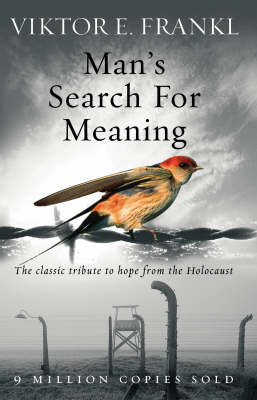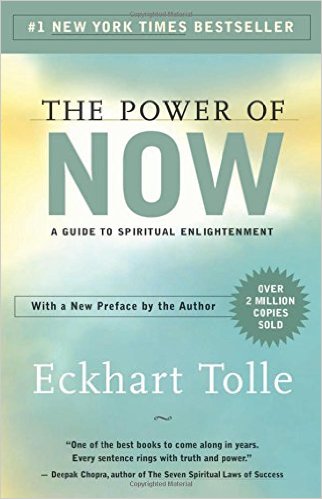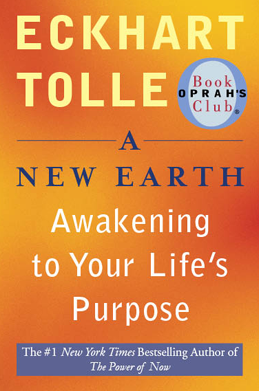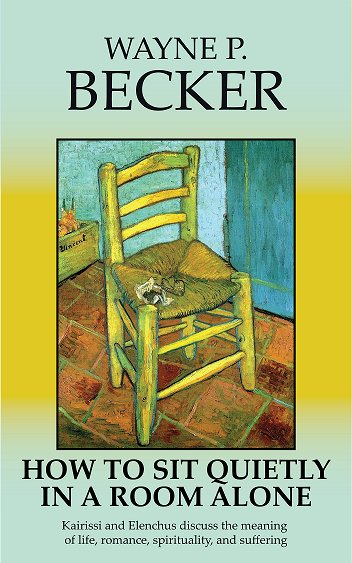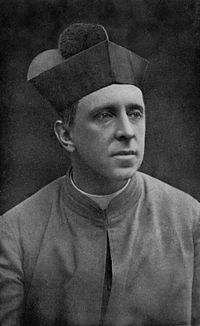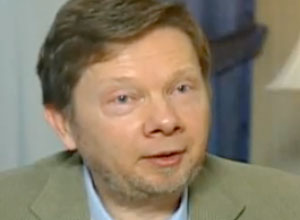|
home | what's new | other sites | contact | about |
||||||||||||||||
|
Word Gems exploring self-realization, sacred personhood, and full humanity
Editor's 1-Minute Essay: Forgiveness
return to "Forgiveness" main-page
Now say you're sorry! "Ok, that's enough! Billy and Jimmy, you just stop that fighting right now!" "He hit me first!" "Yeah, but, he started it!" "I don't care who started it! You're both to blame, you were both fighting! Ok, now, I want you to say you're sorry, and that you forgive each other. Jimmy, you go first!" "I'm sorry... I forgive you." "I couldn't even hear that! - you speak up now!" "OK! I FORGIVE YOU!" "See, that wasn't so hard, was it? That's how to be nice!" Kinda brings back memories. Well, this mom did succeed in restoring law-and-order to Dodge City - but did it teach the kids anything about real forgiveness?
seventy times seven The popular concept of forgiveness is equated with a gritting of the teeth, a burst of will-power, a setting of the jaw - something to be dispensed with quickly, like swallowing bitter medicine. Jesus' men were discussing the subject of forgiveness. Fancying themselves spiritually advanced, they ventured a willingness, if absolutely required, to forgive an offender even seven times. Jesus responded, "seven times? - how about, seventy times seven!" Legalists have interpreted this to mean: "Well, let's see now. Jesus has given us a new law here - seventy times seven is 490 - so that's the magic number when extending forgiveness to a scoundrel; after that, he's on his own, and fair game. Jesus said so." (A recent Presidential candidate, offering the ripest wisdom, seriously put forth this view as biblically correct, a guide for living.) This interpretation would suggest that forgiveness is about careful record-keeping, and staying within your "forgiveness 490 budget." Uh-huh.
seven, the perfect number The ancients ascribed a metaphoric sense of perfection and completion to the number seven. Elsewhere, we've seen that seven is used over 50 times in the book of Revelation: seven lamps, seven angels, seven vials, seven spirits, seven woes, seven trumpets, seven thunders, seven churches, seven heads, seven resurrections, seven plagues, on and on...
"monotonous, isn't it?"
Randomness cannot account for such multiplicity of occurrence; it is clear that the author of Revelation intended for the number seven to offer symbolical significance, not to be taken literally. Similarly, when Jesus' men said "seven times," they meant to say, "We will agree to forgive a perfect and complete number of times - beyond that, reasonable people would not demean themselves to go!" In other words, they thought "seven" would pretty well wrap the whole thing up in terms of moral obligation. Don't push it. 7 But Jesus was unimpressed: "So, you think 'seven times' covers it, huh? Well, how about perfection times perfection, raised by a power of ten?" Clearly, we've moved beyond the realm of legalistic quantification. Forgiveness is more than accounting practice and keeping score; more than will-power and tenacious resolve, with Jimmy, under-study of Eddie Haskell...
trying very hard to say the right words, especially with mom within ear-shot. The truth is,
Sister JoAnn and The Sunflower While visiting Sister JoAnn, one of my professors of some years ago, the conversation turned to writing projects, and I mentioned my "forgiveness" article. One of her favorite subjects broached, she immediately went to a bookshelf and presented me with a copy of "The Sunflower." "I have homework for you," she joked, as she requested my review.
Author Simon Wiesenthal, the famous "Nazi hunter" and concentration camp survivor, offers what many consider to be an exceedingly difficult moral dilemma - a situation that he, himself, experienced:
Wiesenthal, in the main, had listened patiently to the twenty-something Karl, a mortally-wounded SS officer; but, in the end, Wiesenthal decided to say nothing - no last word of consolation to this guilt-ridden soul seeking a particle of comfort in his final hours. "The Sunflower" offers 50 short essays, 50 different perspectives, each attempting to answer the question: "Would you forgive this Nazi?"
The Sunflower: a brief review of the 50 essays The vast majority of the 50 were concerned with questions such as:
The Sunflower: my own thoughts Four essays I particularly liked; two of them, by the Dalai Lama and his assistant. These men understood the merits and perils of the Small Ego; they also understood the illusionary nature of death and the reality of the afterlife; the unending evolution of the soul; and the non-substantive, ephemeral essence of evil. Another noteworthy response, in my opinion, was given by a former Green Beret. His honest introspection, born of great hardship, informs us that war "amplifies and exaggerates the good and evil we have inside us"; moreover, concerning his time in Vietnam, he admits, "I began to see myself as someone I did not want to be." With surprise, and great interest, I noted a writing by Albert Speer, third in command of Nazi Germany. Speer was the only one to acknowledge personal guilt at Nuremberg. He spoke of culpability, that which "cannot be erased in my lifetime"; that, he "can never forgive" himself. "Every human being has his burden to bear. No one can remove it for another."
tape-measure ethics To be frank, I did not enjoy reading nor did I find inspiration from the opinions of most of the 50. In their writings, generally, one finds a great deal of pettiness, self-righteousness, legalism, narrowness, and hard-heartedness.
Much of the discussion approximated that of a courtroom hearing, judge-and-jury sentiments, with precious little, a relatively few token comments, reflecting the true essence of forgiveness. One writer actually stated, essentially, that he would have made sure that Karl would never have left his presence; with this, he said, there would have been "one less Nazi" in the world! The writer seems to have no inkling of what he is saying... is it one less, or one more?
Friedrich Nietzsche: “Whoever fights monsters should see to it that, in the process, he does not become a monster. And when you look long into an abyss, the abyss also looks into you.” If ever I were to find myself on trial, I should not want to be judged by most of those offering opinions in "The Sunflower." I think I'd rather take my chances with the Nazis; because, at least some of them had begun to admit that they were doing bad things; at least Karl was not deceived about who he was and what he had become: a first glimpse of one's own insanity is the beginning of sanity. But I fail to see even a modicum of such clear-eyed humility within the majority view of the 50.
eye for an eye vs. turn the other cheek The Small Ego understands neither the value nor the true meaning of forgiveness; instead, it sees weakness by any such sentiment. It is inspired by perceptions of "I don't have enough" because "I am not enough." Forgiveness is not about "tape measure ethics"; not about tort law or just compensation; not about demanding one's legal rights.
A most famous section of the New Testament addresses the heart of "tape measure ethics."
In the "Sermon On The Mount" (Mat. 5), Jesus speaks of "turn the other cheek" - but, without historical background this phrase might cause some confusion. Notice the context, the Old Testament law of "eye for an eye." While the Israelites did not literally go around putting out offenders' eyes, these words, taken from the book of Exodus, in poetic fashion, refer to measured and proper compensation for injuries sustained. Today we would speak of "suing for monetary damages" - that's exactly the sense of "eye for an eye"; that is, if you suffered an eye's worth of damage, you were entitled to an eye's worth of compensation. All of this serves as context to Jesus' phrase, "turn the other cheek." In other words, Jesus is saying, "You have heard since ancient times that, as a matter of tort law, injured parties are entitled to just compensation, exactly commensurate with damages incurred - eye for an eye! This Old Testament rubric made for excellent tape-measure ethics." However, in a notable "but I say to you" teaching, he dilutes what had been considered sacred law for a thousand years with "turn the other cheek."
Allow me to offer an expanded paraphrase of Jesus' instruction that we might feel the impact of his logic: "You have always heard it preached, 'eye for an eye,' that is, you have a legal right to fair compensation, a just monetary recompense for damages suffered. I'm not suggesting that this precept be done away because it does have its proper place in an equitable society. However, I want to bring a wider perspective. There is more to Life than demanding one's rights. I say to you now that there will be times, in order to further the greater good and to serve God, when you will want to set aside legal rights afforded by strict justice; sometimes, instead of eye for an eye, you will proactively agree to incur further injury or insult; so to speak, you will turn the other cheek. At those times, metaphorically speaking, when you are hit on one side of the face, you will agree to be hit again on the other! that is, you will be willing to accept additional insult and injury - if you deem this forbearance to serve the greater good and honor God." The question will be asked, how shall we know when to live by "eye for an eye" or by "turn the other cheek"? The answer is, God will lead us to know. And how shall we be informed of this directive? - by communing with one's own soul, the "true self," which is linked to God.
I thank thee Lord that I am not like other men!
In the gospel of Luke Jesus tells a story about a man who went into the temple to pray. But instead of asking God for help with his failings, he launches into a speech about how wonderful he is: "I give money to the church, I do this great thing, and I do that great thing! Oh, Lord, I am so glad that I am not like other men - for example, that scum-fellow over there, who shouldn't even be in the temple with me at the same time!"
So condescending and proud is this man, so unrealistic in his estimations, so pleased is he with himself, that we wonder if we've stumbled onto a parody-skit for Saturday Night Live.
non-forgiveness knows nothing of connectedness and centers upon separateness: I thank thee Lord that I am not like other men! In the article on "Evil," we discussed how any human being, under sufficient provocation, utterly led by the insane Small Ego, is capable of any crime, any atrocity, ever committed in history. Most of the 50 "Sunflower" writers, and most of society with them, stand oblivious to this inconvenient and politically-incorrect fact; instead, we busy ourselves with self-praising sentiments of, "I thank thee Lord that I am not like other men." It is overweening fallacy to believe that the young Nazi Karl, and so many like him, were somehow more intrinsically evil than the rest of us. That idea is simply not true, a saccharine bromide we gulp to sedate ourselves. Plain reality reveals gullible and misguided people like Karl, by the untold millions, all around us, every day, in every aspect of society - whose seeds of Evil await germination via sufficient provocation and untoward opportunity. If you doubt me, read the concentration-camp memoirs of Viktor Frankl, wherein he recounts that the worst and most brutal in the camps were not the Nazi SS but the Kapos, those petty foremen drawn from the ranks of fellow inmates, bribed to viciously supervise their own countrymen. Further, among the guards and wardens, at times, were to be found saintly men, who, at risk to their own lives, secretly bought medicines and supplies for the camp-miserable. Frankl states that it was impossible to separate good guys from bad guys based on station and rank as, he asserts, the dividing line of good and evil ran through every heart equally.
Any self-evaluative notion of "I thank thee Lord that I am not like other men" is patently untrue - and to suggest otherwise is invitation to neurotic dysfunction. We live our day-to-day lives with potential ultimate-evil around us all the time - not only on the international-national-local levels but, especially, as near as our own misguided hearts, our own egoic neediness; all that's required to bring evil to fruition, a slipping over the line, is a lack of "presence" to one's true self.
closing in on a clear definition of forgiveness Part of the problem of Evil is that we don't want to know about its true nature; we tell ourselves sweet little lies about how we're exempt, better, and separate; we say or imply that Dr. Frankl is wrong, that evil is not so egalitarian as he suggests; that if we simply try hard enough to be a good person, if we exhibit that burst of will-power with Jimmy, we can cheat existential nature and become one of the good guys of the world who sing, "I thank thee Lord that I am not like other men." Well, to argue the competing view, what's wrong with will-power? "Why can't we simply try very hard to be good people? Is that a bad thing? There are some pretty good neighborhoods to live in where people are conscientious and strive to be fair and just - what's wrong with that? And among these "good" people, they do attempt to live by the magnanimous rule of forgiveness. If someone wrongs them, they endeavor to put vengeance aside and offer forgiveness - so what if it's led by a burst of will-power? Communal well-being is maintained and there is a good measure of peace in the neighborhood. Will-power seems to be working just fine in some places, thank you." Yes, of course, there are many good neighborhoods where people work very hard to live good lives; and, if required, many of these "good" people would try to forgive an enemy. All this is commendable; however, we are forgetting some important truths about the human condition.
As we are so fond of employing the Nazis as posterboys of consummate Evil, let us remind ourselves that Germany, going into World War II, was the most advanced society the world had ever seen. Allow me to quote myself from the "Evil" article: German society was the most cultivated and cultured, the best educated and most sophisticated - from that day to this... Never in history - certainly not since ancient Greece - had so many intellectual and artistic luminaries dominated: Beethoven, Brahms, and Bach; Einstein, Mach, and Braun; Nietzsche, Schopenhauer, and Kant - we could go on for some time here... And to suggest that what happened there could never replicate itself in the United States - here, in our "dumbed-down" educational system - is just wishful, shallow thinking, a dysfunctional denial of the seeds of Evil that reside in the dark quarters of every human heart.
Yes, we have our good neighborhoods; but let us not deceive ourselves. Germany of the early 1930s alsohad its "nice neighborhoods." And young men like Karl grew up in those well-ordered precincts but, in so doing, were not watching inane sitcoms and listening to rap music. In those "nice neighborhoods," German children were studying the arts, music, philosophy, math, and science, in a manner and to a degree concerning which our own "nice neighborhoods" would typically enjoy little acquaintance. And to posit that our children today in "nice neighborhoods" could never slip over the line into ultimate Evil, as did the youth of Germany, is just lying to oneself, a mocking delusion of the nature of things.
Will-power and trying very hard to be good will not forever save us, even if our neighborhoods are presently quiet and orderly; sufficient catalyst and provocation, potentially, might turn it all upside down very quickly - as it's occurred in more advanced societies. Further, in our "good" neighborhoods, I submit to you that in virtually every one of those subdivision houses, behind closed doors, you will find unhappy people struggling, within their deepest persons, to remove the sting and bitterness of some past offense. With all of their "trying very hard to be good," they are unable to forgive at the depths of being.
Like Jimmy, they might have said the words, "I forgive you," but the acidic sentiment of desire for retribution lingers long after and cannot be expunged with platitudes or self-proclamations of clemency. It's not that easy, and it doesn't work that way. Will-power cannot produce one iota of authentic forgiveness. Choices might be made to further the common good, along with speeches and bible verses dedicated to brotherly love - but the wounded, secret heart is not so easily swayed. Forgiveness is utterly foreign to the Small Ego and will not be moved. Most of us, almost all, have never seen or experienced the true forgiveness. It is virtually unknown in our world.
closing in on a clear definition of forgiveness If true forgiveness is foreign to us, how shall we perceive its nature? - how can we come to know that which has never been seen or known? This is more than problematic; but let's look at the word itself. "Forgiveness" literally means "to give before." It seems safe to say that almost 100% of the definitions and examples of "forgiveness" we've considered, plus those featured on the main-page, deal with "to give after." In other words, when someone causes injury or insult, then, after the fact, people are called upon to "forgive"; but on the level of etymology, it's an absurdity. Whatever we do in the aftermath in terms of negotiating peace, with ourselves or a perpetrator, is not "for-giveness" but some version of "aft-giveness".
Semantic games? While, as per strict definition, "forgiveness" takes place before injury or insult is sustained, are we not just playing with words here? Common sense dictates that the business of "forgiveness" must occur after the evil deed is done. Or not. The meaning of a word is a fluid thing, can evolve over time, and no sure guide to current usage. However, in this case, the simple root words of "forgiveness" are clear enough, not susceptible to great variation, and, as we'll see, beautifully capture the spiritual sense of this extremely important virtue.
show me an example of forgiveness Albert Einstein - one of those German scientists - once said,
Most people's lives are currently run by the Small Ego - and it will define "forgiveness" under influence of its lower-level of consciousness. This is why "forgiveness" in the world is reduced to tawdry "tape measure ethics." As Einstein instructs, we cannot solve, nor even properly define, the essence of true, spiritual forgiveness on the level of the Small Ego. Acknowledging this systemic malady, how can we properly assess "forgiveness"? In my own life, it is readily apparent, to me, that, often I am still directed by the Small Ego. But, it's just a process of "growing up"; no big deal. That said, there are times, for fleeting moments, when I've caught a glimpse of the meaning of forgiveness. It will be a long time before its true spirit becomes, for me, a permanent state of mind, but, even so, I've seen "the promised land" from afar; and even that much helps one to sense the core essence. Allow me to share what I've seen as a visitor.
the Spirit Guides: professionals in the art of forgiveness ln "The Wedding Song," we learn that true romance is "something never seen before." True romance, like every other virtue and eternal blessing, is of the soul, something that "bubbles up" like an artesian spring (John 4) from the depths of being, the "true self." In our world, the Small Ego errantly defines virtue in terms of its own narrow, materialistic perspective - utterly misconstruing the nature of love, peace, and joy, along with other aspects of the soul. And so it is with "forgiveness" - something never seen before in our world; that is, until the advent of the "true self," allowing us to catch the first rays of the glorious dawning of a new life and a new humanity. Close at hand, for all of us, is a ready example of true forgiveness. Spirit Guides have been assigned to each person. At this very moment your own Spirit Guides are monitoring you. I think it was Father Benson who said that the Spirit Guides - formerly mortals of the Earth - are carefully chosen and prepared for their service as "guardian angels," so to speak. Having lived on the other side for many hundreds of years, they have attained a level of maturity that might escape us for a while.
in the Spirit Guides, the true meaning of forgiveness is revealed The Guides have been with us all of our lives. They know our talents and weaknesses; in a real sense, they know us better than we know ourselves. These kindly, altruistic - and powerful - advanced persons are not surprised by anything that we do. They are well aware of potentials for good and evil. They never say or think, "Oh, I'm so disappointed in you! After all my work for you! You are such an embarrassment to me and my services! I would never have done that! I thank thee Lord that I am not like other men - like you!" We can afford to smile at the absurdity of a "guardian angel" thinking such ego-centric thoughts. How could he or she be of service to our frail, stumbling selves with such a haughty attitude? Well, it doesn't happen.
the Guides 'forgive' even before the infraction They are not shocked or put off by our foibles. They might not be pleased, but they know all about human weakness and temptation and how hard it is to live "down here" in the trenches. They help as they can, without overly interfering with our choices. If we are bound and determined to learn the hard way, then, so be it, if that's the "teacher" we need; even so, they attempt to "whisper" a better direction for our spirits. But the point is this: in the Guides, we see the classic meaning of "forgiveness." Their actions speak to "a giving before." This means that before we mess up, they've well armed their attitudes to maintain an even keel. They know mistakes and problems are coming. They don't take anything personally; they're not offended; they don't get miffed. We're like little kids to these wise and powerful beings, and they love us, are loyal to us, and want only the best for us, and will stay with us, through thick or thin.
how did the Guides develop this high-level proficiency in forgiveness If we're not careful, we might be tempted to say, they succeeded by trying very hard to become good and finally made the grade over hundreds of years. I don't think so. Jimmy's will-power, whether exercised once or over many years, will only serve to emphasize what we're lacking in terms of forgiveness. Trying hard just makes us feel more empty. Then how did the Guides develop? Instead of "trying very hard" with a "burst of will-power," they learned to relax and came to know the "true self," and began to sense the "eternal life of artesian spring-waters" (John 4) bubbling-up from the depths. Eckhart Tolle offers good advice on how to access the "true self."
Also see my book:
the whole concept of 'forgiveness' is a misnomer, a legal fiction; there really is no such thing; further, to the spiritual mind, there is no offense to be forgiven Imagine this hypothetical situation of the Guides. One says to another, "I can see that in the next five minutes our boy is going to really step in it again. He's making me look bad, and creating more work for me, but, hey, I've counted to ten, my temper is under control, and I've already forgiven him for what he is about to do, despite my best efforts to keep him on the straight and narrow." We can be thankful that no such small-minded, "it's all about me," conversation takes place among the Guides; if it did, their virtue would be grounded in "will-power" and "trying very hard". Rather, the Guides' calm forbearance is rooted in a perception of cosmic oneness with God and with everyone. At the center of being, they've learned to sense an affinity with all of life and creation. The Guides, over their hundreds of years of spiritual practice and meditation, have so aligned themselves with Universal Consciousness that, when they witness their charges about to create trouble, the calamity is viewed, as Tolle says, without "turning it into a me." In other words, the Guides have sufficiently advanced, such that, "it's not all about them" when we mess up. Therefore, the Guides' prescience regarding a charge's mistake never engenders a thought of "forgiveness," as such. They're not remotely tempted by "eye for an eye" compensation; that would never enter their minds. What does this mean? Consider this picture: When a baby in a high-chair is learning to drink a glass of milk, the mature and caring mother will not be offended when the inevitable spillage occurs. She doesn't deliver a warning notice, "A word of caution, little baby, you're getting close now to the magic number of 490, so I'd be a little careful; but it's ok today as I've already forgiven you, even before it happens. That's just the kinda mom I am." How absurd, and, of course, there's none of this egocentrism; for the mature mother, there is no offense, there is no infraction demanding remedy, none exists; no apologies needed, no recompense to be extracted, no debts to be made whole - and the concept of "forgiveness" never enters mom's mind, as she willingly "turns the other cheek," seeking baby's highest and best.
"Forgiveness," strictly speaking, is a corrupted thought-form known only to the needy Small Ego. "Forgiveness," like Zeno's arrow in flight, is the Small Ego's attempt to chop reality into discrete units - but no such "separate" event exists! Instead, compassion for the immature, based on perceptions of common humanity - let's not call it "forgiveness" - is a seamless, continuous, open-ended, and pervasive state of mind of the spiritually advanced. "Forgiveness" was invented by the Small Ego; it's how the Ego imagines spirituality to work, a distorted vision, as it attempts to posture and role-play the image of a "good" person. To the advanced spiritual mind, "sin" and personal offense, and cause for tort claim, do not exist; because, from that better perspective, there is no lack, no deprivation, no shortage, no need to seek for compensation, but only a sense of fullness, abundance, a oneness with God and with everyone, a universal affinity -- love and compassion for all, as we're all connected. No one is separate, no one is "those other people"; there is no "I thank thee Lord that I am not like other men." Everything exists within Sacred Purview, within the Divine Will. Nothing is out of place. It's all "peace like a river," and we simply flow in the current of God's bounty, no matter what happens. Everything, as the "Course In Miracles" instructs, is a lesson God would have us learn. No one can truly harm us, nothing can rob us of heritage and destiny. Immersed in such perceptions of fullness, what need have we of "forgiveness"? - because we can't be offended.
Herman Hess, in his Siddhartha, tells the story of young man who lived during the time of the Buddha. He traveled far and wide in his quest for enlightenment.
all important things in life are learned from a river One day the young man came to a river. The ferryman offered to take him across the raging torrent. During the trip, the ferryman explained that all important things one needed to learn in life could be learned from the river.
Jesus speaks of an inner river, flowing with life In John chapter four, Jesus, speaking to the woman at the well, explains that what we want most in life, in fact, the richness of "eternal life" itself, already exists deep-down within us. Though our souls are perfect, "made in the image," our task is to develop, unfold, and bring to the surface of consciousness the treasure-trove latent within. "It's like living waters, an inner peaceful river, a naturally-flowing artesian spring," Jesus said, "with its hidden source centered in the soul, linked to God." All virtues of the spiritual mind flow naturally from that hidden origin. This is the true source of forgiveness, as it is the source of all other virtues, all other aspects of authentic spirituality. To access the godly qualities of the spiritual mind, including forgiveness, requires no effort, no gritting of the teeth, no burst of will-power. Rather, it all flows naturally, effortlessly, "peace like a river," without the slightest aid from ourselves; in fact, it will carry us, lends strength to us; our part is simply to flow in it.
living in 'the wonder' as the heavens open
Editor’s note. In the “Omega” book, in several articles, we find Elenchus struggling with raging anger concerning Kairissi’s – what he calls – “betrayal” of him. She had given herself to another, and he can’t forgive her for that. After a long time of internal wrestling with himself, and gaining a better state of mind about her motives, he was finally able to understand and let go of torturing images of her infraction. But, sometimes, even wholehearted forgiveness doesn’t mean that we can go back to the way things were. What bothered Elenchus most was that he couldn’t trust her now, couldn’t build a life around her checkered character. How could he choose her as full partner in life, as wife and future mother of children, if she has no good sense? In their case, it came to light that she had been suffering from a cognitive disorder which caused her to make bad judgments. It wasn't her fault. When he accepted this as reality, he no longer felt betrayed, forgiveness for her “sins against holy romance” was no longer an issue. Instead, she would seek for full recovery of herself when she crossed over to Summerland, and then they could be married. It appears that theirs is a happy ending. Not everyone is so lucky. In Jesus' Parable of the Prodigal, the returning son was totally forgiven – but the inheritance was not divided a second time. This detail is often lost upon many. The elder son was not required to share his rightful portion. The prodigal had squandered his dad's gift on fast living in the big city, and now he had nothing, and would subsequently live, effectively, as a hired hand on his father’s farm, directed by his older brother. While there may be forgiveness and sympathy from others, the practical effect of calamitous decisions may never be remedied, at least in this life.
|
||||||||||||||||
|
|









